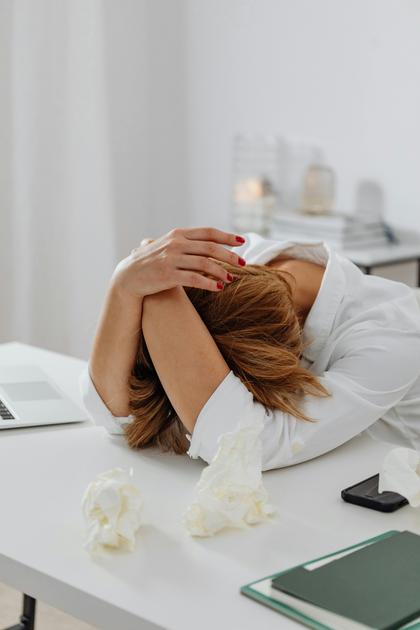Do you often find yourself rushing to the bathroom with bladder urgency? You’re not alone. Many women, especially those over 30, quietly struggle with issues related to pelvic health. Understanding how these challenges impact our daily lives is crucial for reclaiming our confidence and comfort.
Living with persistent bladder urgency can lead to emotional distress, often affecting our social lives and self-esteem. It’s important to know that you’re not isolated in this experience. Together, we can navigate through these concerns, sharing insights that are both compassionate and practical.
Join Thousands of Women Rediscovering Their Energy
This gentle method gave me back the vitality I thought was gone forever
So, how can we deal with this reality gently? See here how many women are solving this without heavy medications, and take the first step towards understanding and improving your pelvic health.
Understanding Bladder Urgency
Bladder urgency, often defined as a sudden and compelling need to urinate, can profoundly impact women’s lives. This sensation can lead to anxiety and disruptions in daily activities. Understanding bladder urgency is crucial for managing its effects on your pelvic health. It is not merely an inconvenience but a symptom that often signals underlying issues in the urinary system.
A normal bladder can hold about two cups of urine, but when urgency strikes, the feeling can be overwhelming. This condition can manifest in various ways, from mild discomfort to an intense, immediate need to find a restroom. The sensation can be exacerbated by factors such as stress, hydration levels, and even certain foods.
The Impact of Pelvic Health on Daily Life
Pelvic health plays a significant role in the overall wellness of women. Issues like bladder urgency can disrupt not just everyday activities but also intimate relationships and mental health. Experiencing frequent and unexpected urges can lead to:
- Fear of Leaving Home: Women may avoid social outings or trips due to the anxiety of potential incontinence.
- Sleep Disturbances: Nighttime trips to the bathroom can lead to insomnia, keeping women fatigued.
- Emotional Impact: The stress and embarrassment associated with bladder urgency can affect self-esteem.
Such impacts can create a cycle of anxiety and avoidance that further complicates pelvic health. Being aware of the connections between bladder health and daily life can empower women to seek solutions.
Common Causes of Bladder Urgency in Women
Understanding the root causes of bladder urgency can help in seeking appropriate treatment. Common factors include:
- Urinary Tract Infections (UTIs): Infections can cause irritation and frequent urination.
- Pregnancy and Childbirth: Physical changes and hormonal shifts can affect bladder control.
- Menopause: Decreased estrogen levels can weaken pelvic floor muscles, resulting in urgency.
- Dietary Triggers: Certain foods and beverages—like caffeine, alcohol, or spicy foods—can irritate the bladder.
- Neurological Conditions: Disorders such as multiple sclerosis can affect nerve signals to the bladder.
Recognizing these causes can aid in discussions with healthcare providers. Understanding one’s body and its functions is the first step toward managing bladder urgency effectively.
When to Seek Help for Bladder Issues
It is often tempting to dismiss bladder urgency as a normal part of aging or stress. However, it is crucial to seek help if you experience:
- Pain or discomfort: Accompanying pain could indicate a more serious issue.
- Frequent UTIs: Recurring infections may require targeted treatment.
- Changes in urination patterns: Any sudden changes should be discussed with a healthcare provider.
Seeking help early can lead to better outcomes. Don’t hesitate to talk to a doctor about what you’re experiencing.
Lifestyle Changes to Manage Bladder Urgency
Implementing lifestyle changes can significantly reduce the frequency and intensity of bladder urgency. Consider the following:
- Water Intake: Stay hydrated, but learn when to regulate fluid intake, particularly before outings.
- Regular Bathroom Breaks: Establish a schedule to prevent urgent situations.
- Limit Trigger Foods: Identify and reduce intake of foods and drinks that irritate your bladder.
- Mindfulness Techniques: Stress management can help reduce urgency caused by anxiety.
These changes may take time, but they can greatly improve bladder health and overall lifestyle.
Pelvic Exercises for Improved Health
Pelvic floor exercises, commonly known as Kegel exercises, are essential in managing bladder urgency. Strengthening the pelvic floor muscles can lead to better bladder control. Here are some exercises to consider:
- Kegel Exercises: Regular practice can enhance muscle strength and endurance.
- Bridges: This exercise strengthens the gluteal and pelvic muscles, offering support to the bladder.
- Squats: Squats help tone the muscles surrounding the pelvic area.
Incorporating these exercises into your routine can empower you to regain control over your bladder and improve your pelvic health.
Diet and Bladder Health: What to Consider
Your diet plays a critical role in bladder health and can influence urgency. Consider these dietary tips:
- Hydration: Drink enough water to keep urine diluted and reduce irritation.
- Fiber Intake: A diet rich in fiber can prevent constipation, which can exacerbate bladder issues.
- Avoid Irritants: Identify any specific foods that trigger bladder sensitivity and avoid them.
By adjusting your diet thoughtfully, you may find relief from the symptoms of bladder urgency.
Understanding Hormonal Influences on Pelvic Health
Hormonal changes—especially related to menstrual cycles, pregnancy, and menopause—can significantly affect bladder health. Estrogen influences how muscles function in the pelvic area. Therefore, fluctuating hormones can lead to changes in bladder control. Consider:
- Menstrual Cycle: Some women experience more urgency during their periods.
- Pregnancy: Increased pressure on the bladder can lead to frequent urges.
- Menopause: Post-menopausal women often have bladder control issues due to decreased estrogen.
Understanding these connections is vital to addressing bladder urgency during various life stages.
Emotional Wellbeing and Pelvic Health
Your emotional health is intertwined with pelvic health. Stress and anxiety can amplify feelings of bladder urgency. It’s important to take care of your mental well-being by:
- Participating in Relaxation Techniques: Practices like yoga and meditation can ease stress.
- Seeking Support: Talk to friends, family, or professionals about how you feel.
- Staying Active: Regular exercise can boost mood and reduce anxiety.
By nurturing your emotional health, you can create a positive cycle that supports your pelvic health, helping alleviate bladder urgency.
Pathways to Recovery: Steps to Take
Recovering from bladder urgency is possible with informed choices and consistent effort. Here are the steps you can take:
- Educate Yourself: Understand your body and the factors affecting your bladder health.
- Consult Healthcare Providers: Do not hesitate to discuss any symptoms with a healthcare professional.
- Incorporate Healthy Habits: Adjust your diet and exercise routine to support your pelvic health.
- Be Patient: Recovery takes time; be kind to yourself during this process.
By adopting these pathways, many women have found relief and improved their quality of life.
Join Thousands of Women Rediscovering Their Energy
This gentle method gave me back the vitality I thought was gone forever







